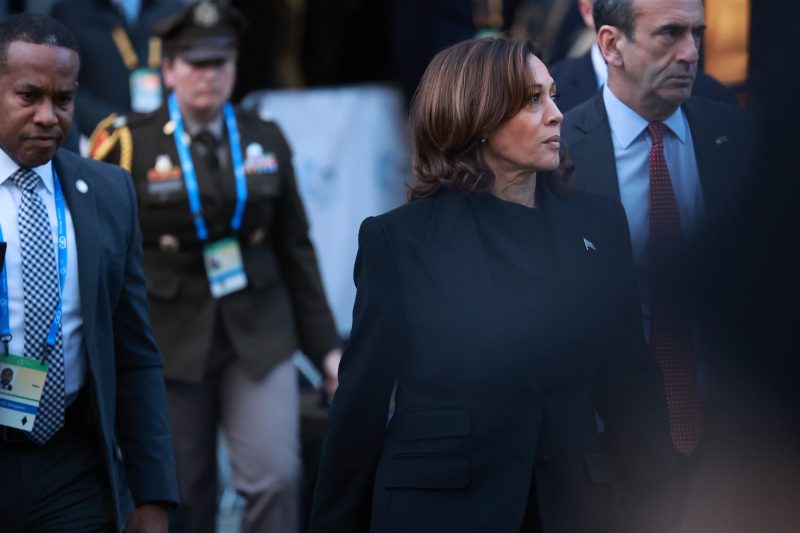In a rapidly changing global landscape, Vice President Kamala Harris is taking on an increasingly pivotal role in shaping U.S. foreign policy. With President Joe Biden entrusting her with key responsibilities, Harris finds herself facing a crucial test as she steps out of his shadow and navigates complex international challenges.
One area where Harris’s mettle is being tested is in managing the United States’ relationship with China. The longstanding rivalry between the two nations has only grown more intense in recent years, with issues ranging from trade disputes to human rights concerns. Harris’s task is to strike a delicate balance between asserting U.S. interests and avoiding a descent into open conflict. Her previous experience as a senator and prosecutor equips her with the negotiation skills required to engage with Beijing on a wide range of issues.
Another critical aspect of Harris’s foreign policy portfolio lies in addressing climate change and sustainability. President Biden has made environmental issues a centerpiece of his administration, and Harris has been tasked with building alliances and spearheading initiatives aimed at combating climate change. Her background in environmental law and advocacy will be instrumental in advancing the administration’s ambitious green agenda on both domestic and international fronts.
Furthermore, Harris faces pressing challenges in dealing with the ongoing crisis in Afghanistan. As the administration grapples with the withdrawal of U.S. troops from the region, Harris must navigate a complex web of political, security, and humanitarian considerations. Drawing on her experience on the Senate Intelligence Committee, she is well-positioned to assess the risks and opportunities associated with the Afghan conflict and to formulate a coherent strategy that prioritizes national security interests.
On the global stage, Vice President Harris is also called upon to address the resurgence of authoritarianism and the erosion of democratic values worldwide. With the rise of various populist movements and the increasing influence of autocratic regimes, Harris faces the task of upholding U.S. commitments to democracy and human rights while engaging with diverse political systems. Her background as the first female and first Black Vice President brings a unique perspective to these discussions, emphasizing the importance of inclusivity and diversity in shaping international relations.
As Harris continues to shape U.S. foreign policy in the Biden administration, she must draw on her diverse skill set, diplomatic acumen, and deep understanding of complex global dynamics. With the world watching closely, Harris’s performance in addressing key foreign policy challenges will not only define her legacy but also shape the course of U.S. engagement with the international community for years to come.


























